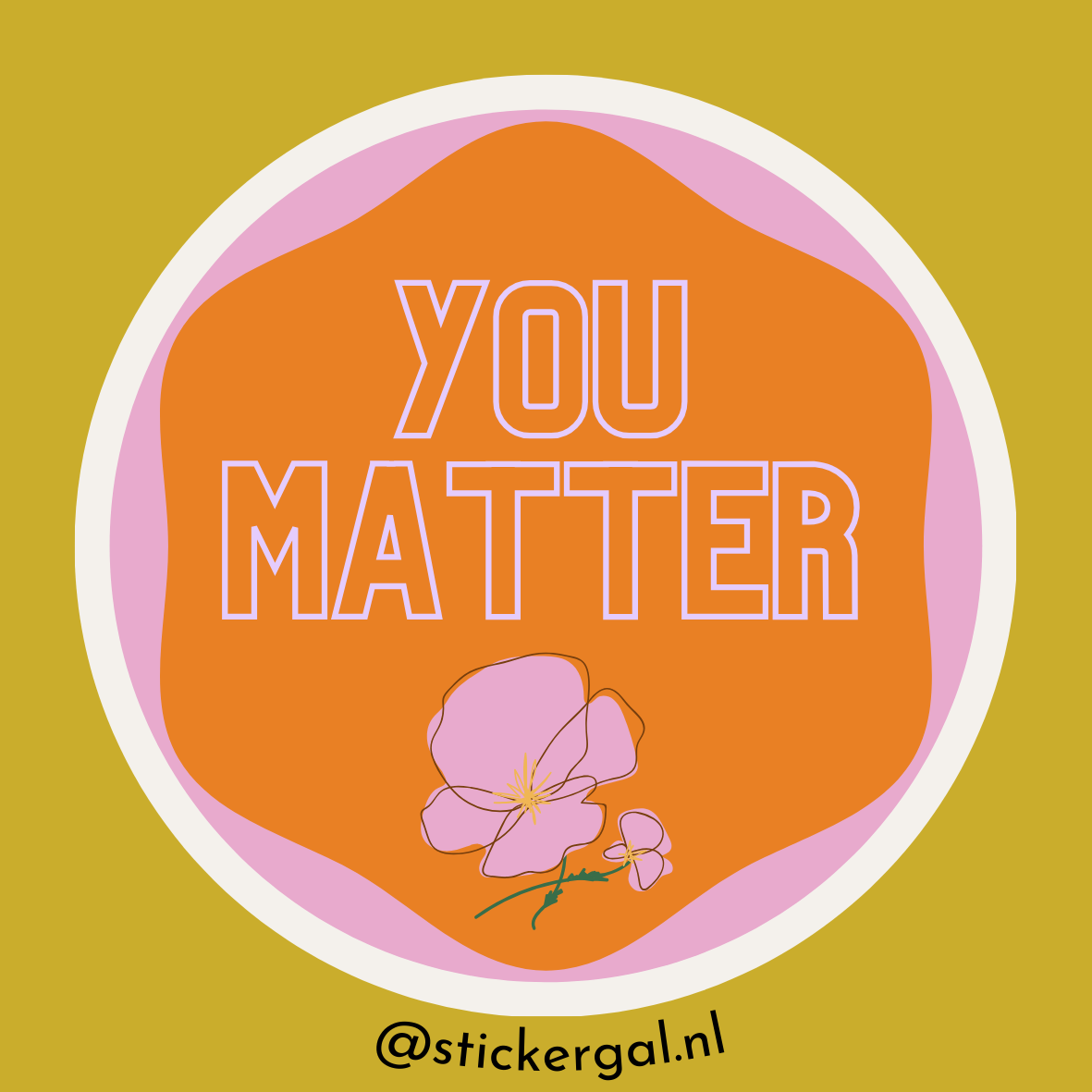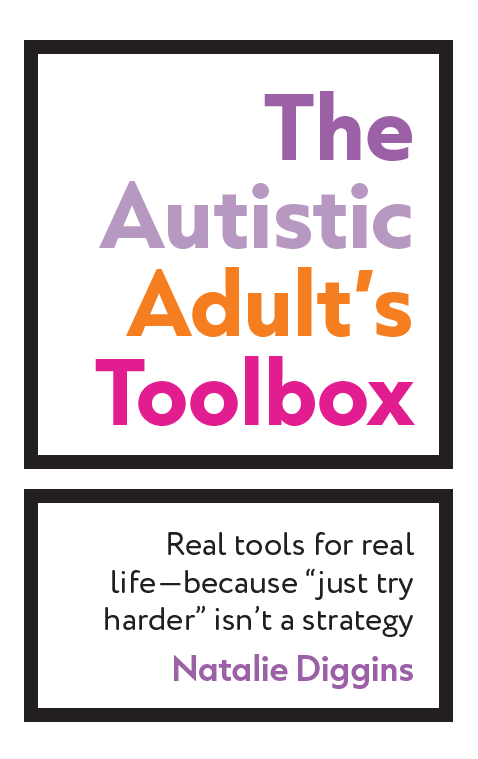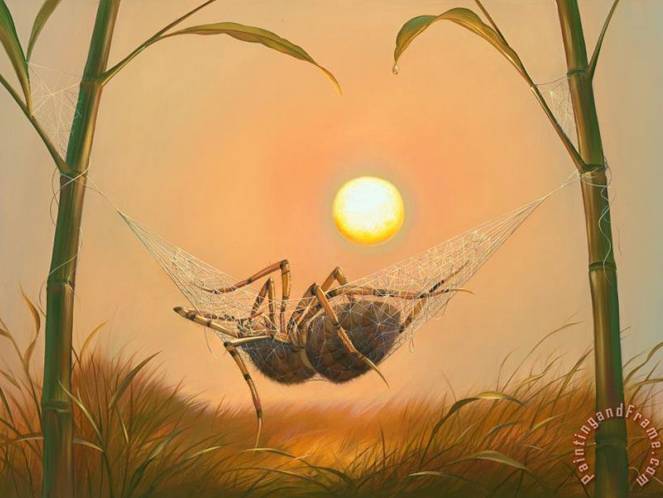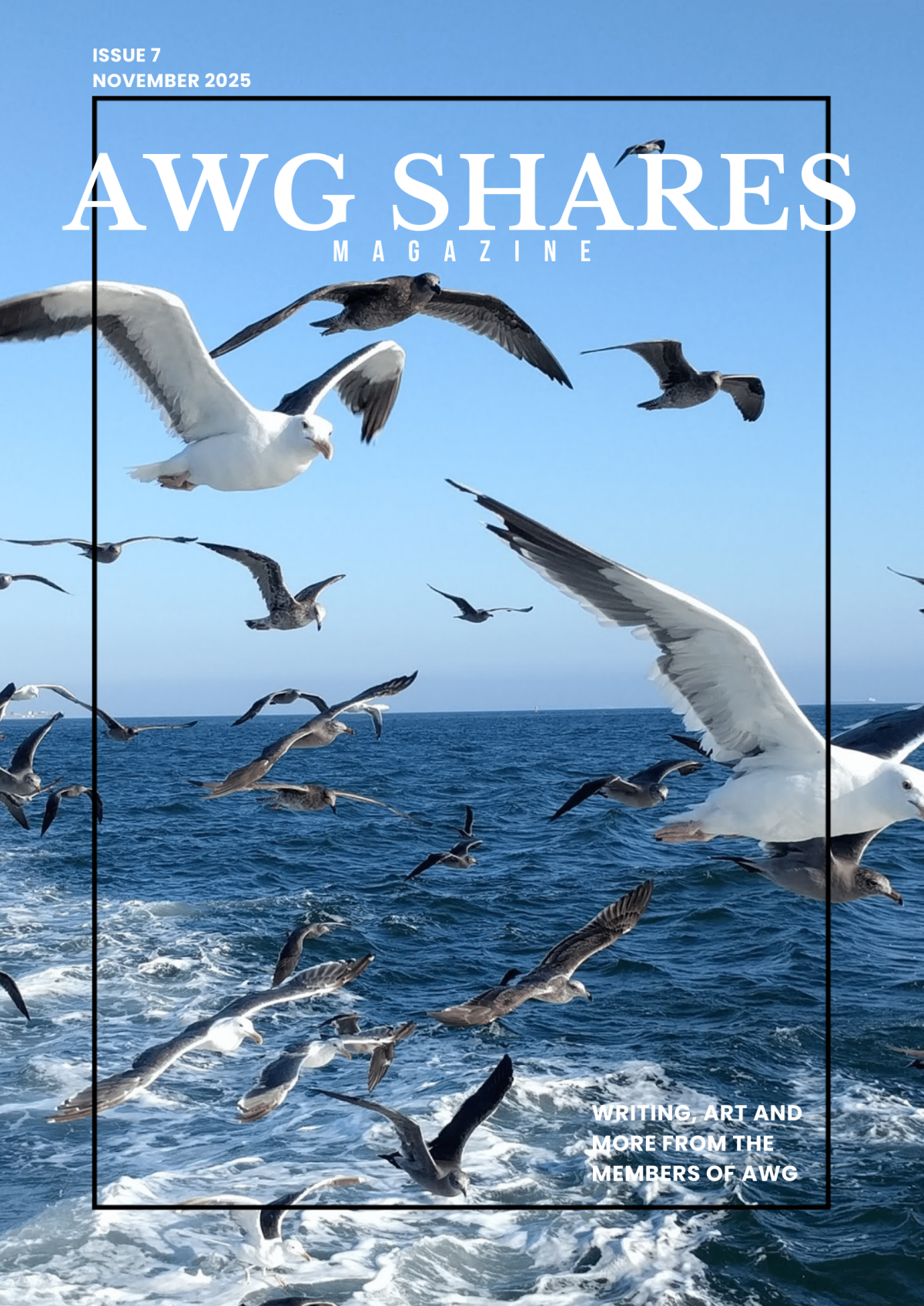
Contents
November 2025 • Vol. 1, Nr. 7
Editorial Dept.
Annie Mydla
Sol Iacob
Cover
Elissa Fox
About Autistic Women's Group • Annie Mydla
About This Month's Cover
Seagulls of Long Beach • Elissa Fox
Quotes of the Month
Autism Chrysalis Life Coaching
What to Expect in the Later Identified Autism Journey • Heather Cook
What to Expect in the Later Identified Autism Journey • Heather Cook
Essay
Erased. (2015) • Morénike Giwa Onaiwu
Erased. (2015) • Morénike Giwa Onaiwu
Essay
Isn't it romantic? • Emmie
Photo
Nature always welcomes us just as we are • Darling
Nature always welcomes us just as we are • Darling
Book Excerpt
Interview with My NT Husband • Natalie Diggins
Interview with My NT Husband • Natalie Diggins
Portrait
Internalized View of Self • Hunter Grant
Internalized View of Self • Hunter Grant
Short Story
Kiya's Meltdown, A Children's Story • Stacey Plate (aka, Wren’s mom) and Wren (8 years old)
Kiya's Meltdown, A Children's Story • Stacey Plate (aka, Wren’s mom) and Wren (8 years old)
Trigger warning: portrayal of autistic suffering and meltdown
Flash FictionComics
Bathrobe Gal: Holiday Survival Tips • Sarah Jane Cody
Sticker
About Autistic Women's Group
Established 2021
AWG is an online support group for late-identified autistic women and all other members of marginalized genders. The meeting format is designed to reduce the sensory, social, and executive function burdens that normally come with socializing. Our members are clinically-diagnosed, self-diagnosed, and questioning. AWG is volunteer-led and not associated with any other umbrella organization or company.
Please consider joining us on Zoom. Our member profile is inclusive. Meetings are always free and no registration is required. Members share by speaking or typing. We have many members who come just to listen. You never have to turn on you mic or camera if you don't want to. You don't have to come to every meeting, or stay the whole meeting, in order to be a full member. Disclosure of diagnosis/gender identity is welcome but never required for participation.
Click her to learn more about attending a meeting. You can also...
- See upcoming meeting topics
- Sign up for meeting reminders (scroll the homepage to find the signup form)
- Join the AWG subreddit
I hope you enjoy AWG Shares Magazine. And please do join us in a meeting sometime if you can.
Annie Mydla
Founder and facilitator, AWG
About This Month's Cover: Seagulls of Long Beach
Elissa Fox
This month's cover features a photo taken by my late husband, Jordan Fox. He was on a fishing trip off the coast of Long Beach. While he didn't catch a thing, he did snap this great picture of the seagulls waiting for a snack. My husband was such an important figure in my life. We were together 17 years. I felt so supported, cared for and loved by him. We were able to move to new countries and travel around the world during our time together. Having him as my partner gave me the strength to keep trying when things felt too much. He accepted me as I am before and after diagnosis, and was always invested in coming up with new ideas to make life more manageable for me. I'm not sure how to go forward without him. Hoping with time I can learn to trust life. I will forever be grateful for the love Jordan brought to my life. In memory of Jordan Michael Fox June 14, 1983 -- October 7, 2025
Quotes of the month
Quotes relating to autism and AWG values by autistic and non-autistic people. Have a quote you'd like to share? Send it for inclusion!
“Talent is a burden, not a joy. I am not of this planet. I do not come from you. I am not like you.”
“The possibility of a profound cultural reform in our society depends on the decolonization of our gestures and acts and the language with which we name the world.”
―Silvia Rivera Cusicanqui, Ch’ixinakax utxiwa: A Reflection on the Practices and Discourses of Decolonization
Night Creatures of the Little Lakes
by Alëna Korolëva
https://alenakoroleva.com/
This composition is made from sounds recorded over four nights in June 2023 near Little Lakes on the Territory of the Anishnabek Nation also known as Huron County in Ontario, Canada. These lakes are located in a patch of old-growth forest which is currently under the threat of erasure by a gravel company.
While the local community has worked diligently to protect the forest and its irreplaceable ecosystem, the gravel company hired “experts” to make an environmental assessment which uncovered no significant animal life and specifically noted that there were no amphibians in this area. You might believe this statement if you stop by for a moment during the day, but if you happen to be there after dark, your ears will tell you a different story.
This composition features green frogs, American bullfrogs, coyotes, redwing blackbirds, black-capped chickadees, mourning doves, roosters, red squirrels, crickets, raccoons, rabbits, beavers, and a few unidentified species.
Released September 20, 2024 on forms of minutiae
as a part of the harkening critters compilation
as a part of the harkening critters compilation

Photograph by Alëna Korolëva
What to Expect in the Later Identified Autism Journey
Heather Cook, Autism Chrysalis Life Coaching

Are you figuring out as an adult that you’re Autistic, not broken, weird (in a bad way), or wrong after all? And figuring out what that means for your life?
This describes what to expect after you figure out as an adult that you’re autistic. The 5 stages we predictably go through. Our individual circumstances, lives, and personalities are all unique, but there are some reliable patterns to the journey, and some consistent hangups that block progress.
This is a recording of a workshop hosted by Heather Cook of Autism Chrysalis in 2024
You can read a full transcript of the video on the Autism Chrysalis website.
Visit Autism Chrysalis and follow Heather on social media:
Website: www.autismchrysalis.com
YouTube: https://www.youtube.com/@autismchrysalis
X/Twitter: https://twitter.com/hmm_cook
Mastodon: https://universeodon.com/@hmm_cook
Instagram: https://www.instagram.com/autism_chrysalis
BlueSky: https://bsky.app/profile/autismchrysalis.bsky.social
YouTube: https://www.youtube.com/@autismchrysalis
X/Twitter: https://twitter.com/hmm_cook
Mastodon: https://universeodon.com/@hmm_cook
Instagram: https://www.instagram.com/autism_chrysalis
BlueSky: https://bsky.app/profile/autismchrysalis.bsky.social
Erased.
Morénike Giwa Onaiwu
First published on the author's blog, Just Being Me...Who Needs "Normalcy," Anyway?
Reprinted with the author's permission.
Dear "autism community," especially autism parents,
Far too frequently the perspectives and experiences of autistic adults are dismissed by autism parents. Not by all parents, of course, but too many. We are told that we are "too high functioning" to understand what you are "dealing with." We are told that we cannot understand the "severe autism" that some of your children have. We are told that we "cannot speak" for your children because we are too different and that we don't have the same needs.
There are a lot of things wrong with that generalization; a LOT. But I'm only going address one of them right now. And that is that it needs to be remembered that there ARE autistic adults out here who are also parents of autistic children. I am far from being the only one; we are many.
My perspective as an autistic adult would be relevant even if I had no children. As an autistic parent of autistic (and non-autistic kids), it may be even more so in certain circumstances. By failing to acknowledge me, you have disregarded me not once but twice.
To separate me from my own children because of something as arbitrary as age to me makes as little sense as it does to ask someone who is biracial to "choose" what race they must identify with instead of respecting that they represent both. While I doubt it is intentional, sentiments like this are as hurtful as they are disrespectful and dismissive.
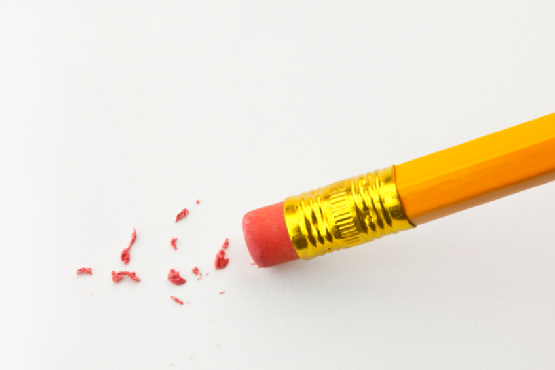
Photo credit: srzen dot com
By disregarding my perspective simply because I am an Autistic adult and not an Autistic child, you erase me.
You erase me from my past as an Autistic child.
You erase me as a parent who has the same dreams, hopes, and fears for my children as you have for yours; I just happen to have a neurology different than you.
You erase me from my lived experiences and all of the gains that I've fought so very hard to make.
You erase me.
Autistic People's True Colors
As far as I can remember, I never had a favourite colour. I had two.

More specifically, two colors next to each other — not blended, not separately, but the combination of them. They changed at various turning points in my life. As a kid, it was light blue and black. In my 20s, it was mustard and dark blue. Now, after my life has gone through big changes, it’s become dark green and white.
I have no idea what governs this relationship to colours, or why each combination seems to contain a synthesis of the previous one (black + light blue = dark blue, dark blue + mustard = dark green…) It just happens on its own. I just know that one day I looked at a picture where dark green and white were combined, and I had the same feeling as when you fall in love. No kidding. It was like my entire nervous system was thanking me for giving it a break by looking at that particular combination of light waves. It was such a feeling of relief that I instantly knew I need to redecorate my entire room with those colours, and I will be able to relax in it.
It makes me wonder about the relationship that autistic people can have with colour. I find the relationship between humans and colours fascinating in general. A close friend of mine is a hairdresser. Colour is a science to her — she will remember the gradient down to a level of detail that I never considered. There are very colorful cultures, and very grey, sober ones. Each individual has particular colours that suit them esthetically. The relationship with colours in art has profoundly changed over time, with evolving taste and technology. Certain colours evoke certain natural environments. I find it all fascinating.
I almost exclusively dress in black. I don’t know exactly when it happened, I just know that at some point, before I realized, I looked at my wardrobe and it was all black, like I was either a thief, a vampire, a ninja, or all three combined. Even when I strived to try out more colorful things at the shops, I always ended up buying black. Maybe it was my way of mourning during depression. I was just mourning. Nothing in particular. Everything.
But most likely, it was just because black absorbs all light, and my pupils needed a break from being constantly assaulted with light. White on its own is aggressive, it invades my eyes. Orange makes me uneasy. Darker colours are soothing. Warm light is more flattering to all colours – fluorescent light, on the other hand, is an insult. Colored lights make me flee the room like someone’s after me. The light going through orange-brown autumn tree leaves shocks me for how beautiful it is. Purple and sand is a great combination. And sometimes I think of the universe just to imagine an endless, quiet, colourless space. Pure peace of the senses. It’s relaxing to imagine.
Autistic people have sensory sensitivities — that does not only mean overwhelm. It also means often incorporating colours in our lives in unconventional and artistic ways. I know of an autistic person who loves red. They wear red, their hair is red, and they have taken the name Red. It’s part of their identity, because it’s woven into their very perception of the world. My two autistic parents, who are as opposite in personality as day and night, have been respectively obsessed with red and green their entire life. Many autistic people like colored lights, rainbows, iridescent things, or observing the nuances of colour in nature. Many others may particularly like certain shades, and type of materials for how their colour reflects light — matte, shiny. The type of light and colour that surround us can be really important for some of us. We are creatures receptive to our environment, more often than not. Like those plants that need an exact amount of humidity, light, and soil composition, in order to grow. They are usually the ones that give the most extravagant flowers. Of extravagant colours.
Isn't it romantic?
Emmie
Isn't it romantic?
Well my brain certainly seems to think so. I can’t seem to stop conjuring up these potential conversations in my head. I imagine what someone would think if they were watching my life. I dream up meetings and exchanges that haven’t happened and are often unlikely to ever happen.
What is it about my mind that needs to meticulously plan interactions? I seem to need a script for every conversation, so that i’ll appear competent, interesting, and likable. It feels sort of desperate, like i’m trying to convince myself that I can hold my own or be appealing to others. The sad reality is that the interactions i dream up rarely ever - if ever - come to pass. I have this lingering need to be wanted and appreciated and seen that dreams up scenarios where I am cool, calm and collected. In these visions I am invincible and not rattled by the world around me. I am not overwhelmed, I am not self-conscious, I am not insecure. I somehow always have the right thing to say. I appear mysterious and alluring, drawing people in and leaving them wanting to know more about me.
Why does this fixation persist? It seems to grow more incessant, unwilling to be ignored, and bleeding into my thoughts in a never ending spiral of grandiose experiences and idealized interactions. Currently it permeates my mind and colors my days, and I wonder if its pervasive presence is due to the recent discoveries I am making about myself and my ability to process the world around me. is it because I have this gnawing insecurity about myself, convinced of my weakness, and needing to prove to others that I am strong and capable? I want others to approve of me, and I can’t seem to find self-approval no matter where I turn.
These romantic, almost storybook scenes that come to life in my mind feel fake and saccharinely sweet. They are enticing but exhausting as i spend immeasurable amounts of mental energy on picturing them and acting them out in my inner monologue, and I am left conflicted. I feel stupid and silly for having these thoughts, almost like a child that believed in the tooth fairy for a little too long. I have this itch that burns up the back of my neck as I fall into these visions of my future, and I feel ashamed but unable to stop them. I feel so childlike and immature, why do I need others to care and approve of me so desperately?
What is it about me?
I don’t like these patterns, but I feel powerless to stop them. During times when these delusions swim through my mind I tend to lose a sense of control. I take more risks, and try to find a way to exert control over my body. In the past it has been piercings, climbing to the edge of cliffs and drinking to excess, but more recently I find myself trying to exercise control over pain. I push my body to its limits, I drive too fast, I pull out hair. I have a frantic need thrumming below the surface, a quiet but steady hum that rests under my skin, nudging me in the direction of risky behavior and obsessive thought.
I’m very tired, but at the same time a sense of unrest is nesting deep within me, causing tension and friction in my body. A constant push and pull for control that strips me of balance and routine and leaves me feeling lost in a world I have unwillingly created.
If a romance, then most certainly it is a toxic one.
Nature always welcomes us just as we are
Darling

Interview with My NT Husband
Excerpted from The Autistic Adult's Toolbox, by Natalie Diggins
This interview has been edited for clarity and flow. For more tools for autistic adults, read the entire chapter here for free or purchase the book.
Natalie: Thanks for agreeing to talk publicly about our relationship. Are you nervous?
Husband: Not at all.
Well, that makes one of us. Let’s dive in. When we first got together, you didn’t know that I was autistic. What were your first impressions of me?
Well, you were certainly very different than anybody else I’d ever met. You were completely logical, unemotional, and organized beyond any standard I was ever aware of. You were, of course, hot.
You know I’m going to edit that last part out. (Note: I was overruled.)
And you were deliberate in everything you did. Nothing is left to chance; nothing is left unplanned. It took some getting used to.
That’s fairly accurate. How would you describe your own approach to life, and specifically, to relationships?
It’s a good question. I would say up until that point, I was more reactionary and less proactive. I also planned a lot less. As far as relationships go, I would say I led more with emotion and less with reason.
In my previous long-term relationship, I was the less emotional one by far, though I was still very emotional. It was new for me to have that world flipped.
I remember one time, but I forget the exact details, when I reacted in a certain way, and you basically said, “You get to do that once, but that’s not how we do our relationship.” I’m like, wait, that’s not how we do this? I thought that’s how you did it. I learned a lot about how to have a better and stronger and more respectful and less volatile relationship from you.
I think I know the instance, and it was our first big argument. You sort of exploded. That’s when I came up with the “never fight dirty” rule.
This brings up how we engage in relationships differently. How would you say that we each do so based on our individual neurotypes?
One thing jumps out immediately.
If we do have a fight or a difficult discussion, the fight helps me work through whatever I’m feeling and whatever is happening between us. Having the discussion is not at all helpful to you unless there’s agreed action at the end of it. You want it to end with a series of steps that will be taken so that the argument doesn’t happen again. And I view life as a series of these things.
In my previous long-term relationship, I was the less emotional one by far, though I was still very emotional. It was new for me to have that world flipped.
I remember one time, but I forget the exact details, when I reacted in a certain way, and you basically said, “You get to do that once, but that’s not how we do our relationship.” I’m like, wait, that’s not how we do this? I thought that’s how you did it. I learned a lot about how to have a better and stronger and more respectful and less volatile relationship from you.
I think I know the instance, and it was our first big argument. You sort of exploded. That’s when I came up with the “never fight dirty” rule.
This brings up how we engage in relationships differently. How would you say that we each do so based on our individual neurotypes?
One thing jumps out immediately.
If we do have a fight or a difficult discussion, the fight helps me work through whatever I’m feeling and whatever is happening between us. Having the discussion is not at all helpful to you unless there’s agreed action at the end of it. You want it to end with a series of steps that will be taken so that the argument doesn’t happen again. And I view life as a series of these things.
You can’t keep them from happening, but you make them fewer and further between, you make them less volatile, you manage them better. But the goal of essentially eliminating conflict is new to me. Since I don’t believe it’s possible, I don’t spend a lot of time worrying about it.
I wouldn’t say that I am trying to eliminate conflict, although I wish I could— I’m more pragmatic than that.
I feel we’re aligned on the outcome—a supportive, loving relationship—but how we get there is different. Talking about the issues makes you feel better, almost like a pressure release valve that lets off steam. It drives me nuts to keep having the same fights repeatedly—it’s like the movie Groundhog Day where the same day repeats over and over.
If I go through the anguish and the emotion of having the conflict, I expect things to improve, and the only way in my mind things improve is if we agree to outcomes and to do things differently the next time.
Earlier, you said that you hadn’t met anyone like me before, but I know you’ve had other experiences with autistic people. How has your perspective on autism changed since we met, if it has?
The first autistic person that I knowingly talked to was Temple Grandin, the academic and ethologist who gave a TED Talk about autism. I learned from her that someone can have autism and be highly functional. Before that, what I knew about autism I learned from watching Dustin Hoffman in the movie Rain Man.
Then, a friend’s child was diagnosed with autism, and it gave me another example of what it can look like. All these people experience autism in different ways, and it validates why ASD is called a spectrum—autism doesn’t look any one way.
What I’ve learned from you is how difficult it is for people with autism to live in a world designed for neurotypicals. Every day I watch you and see how hard it is. I appreciate it, although I won’t ever truly know how hard it is because I haven’t lived it.
Thanks for recognizing that and for not trying to “fix me.”
I’m very blunt, and I approach life in a scientific manner. Despite meaning no harm, I sometimes hurt your feelings. How do you handle situations where I’m too direct and analytical for your comfort?
I cry.
I know you do, and I’m sorry to put you through that. It guts me when I hurt you, and I’ve been trying to give you reassurance before saying what I think, but I know I don’t always get it right.
I mean, it’s hard. If I didn’t respect you, I wouldn’t care what you said, but I do respect you, and sometimes I disagree with you, but even if I do, I still respect you. I don’t ever want someone who I love to feel that I failed them.
Here’s a fundamental difference between us: If I’m giving feedback on you, me, or us, it’s not an indictment of you, me, or our relationship. I know that we’re not perfect, and I just want to be better. I can see that I’ve wounded you with my words, but because they weren’t meant or said harshly, I don’t understand why I’ve done so—I’m at a loss.
I look at both my intention and what I perceive to be a lot of hard work to accommodate you. Making your life easier is a big part of my everyday living. And when it’s not done right, or it just didn’t work, or whatever it is, it’s hard on me. It’s like the guy who goes up to bat at the World Series with bases loaded and strikes out. I mean, it’s just that feeling that I stepped up and took my shot and I failed.
"What I’ve learned from you is how difficult it is for people with autism to live in a world designed for neurotypicals. Every day I watch you and see how hard it is."
You bring up the accommodations that you make for my autism, and I very much appreciate all the things that you do for me. One reason I think our relationship works is that you also appreciate the things I do for you.
Even if we were both NTs, which we’re not, we would be making accommodations for each other. The difference for us is that the accommodations you make for me are due to the way my brain is wired, whereas the accommodations I make for you are related to your life experiences. An example I use in the chapter on NT/ND romantic relationships is your fear of dogs and how I help you manage that. And that’s a common thread throughout this book. We’re all making accommodations in life, regardless of neurotype.
I agree.
What’s something you’ve learned about yourself and our relationship, especially regarding how you handle differences?
I can manage life in general much better. I think that it’s partly age and experience, but it’s partly being with you and being in our relationship. I can take myself out of a situation better than I used to be able to, and I’m better able to depersonalize conflict. An example is if I get rejected professionally, I don’t take it personally at all. I can be a bit more philosophical.
What is something you think we do better as a couple because of our differing neurotypes?
Each of us optimizes for different things, and each of us recognizes that the thing the other one optimizes for is worthy of doing. In the end, I think we end up having a better life because we balance each other. It would be boring if we were too similar.
Speaking of balance, balancing our sometimes contradictory needs is a big part of how we manage our relationship and lives. How do you make sure your needs are met while also considering my neurodivergent needs?
Early in our relationship, you taught me that you have to be a strong me to be a strong we. At first, I wasn’t good at that, and then, over time I learned not to worry when you were being a strong me and I wasn’t included. Now, I don’t mind going to social events on my own if you want a night off or if you want to do something on your own. It took time, but I feel we do this well. It’s probably because we’re secure in our relationship.
I want to talk about something that’s particularly challenging for me—my downs. While I’ve been able to manage my downs better as I age, they still happen. A few months ago, I had a major down, one of my worst ever. It took me weeks to recover. I know my downs don’t just affect me but you as well. How do you approach navigating my downs as my partner?
I think the most challenging thing is to understand that at times there’s nothing I can do to help. Certainly, if it’s because of something I’ve done, I can cease the behavior. Or if it’s a situation that’s problematic for you, I can help to remove you from it, and then there are times where I’m not aware of what’s going on. The downs are mysterious, and I really don’t know what to do.
I think something you’ve done a great job with is anticipating crowds and what they do to me. If we must move through a crowd, which unfortunately is often, you sort of get a bubble going around me and try to find a path through the crowd for us that is less dense. I really appreciate that.
You see me in great anguish and distress when I’m in a down. How do you cope or manage your own emotions?
In the moment, I try to manage it. Managing crises is something I do in my job, and it’s something I’ve done over my life with close family members who have various kinds of emotional and non-neurotypical reactions. And so being around that has allowed me to at least in the moment manage the situation and not make it personal.
What do you think we could do together to make these times less stressful for both of us?
The thing to do is to better anticipate the potential for downs. So, for instance, we recently decided to go to a big event, and before we bought tickets to the event, I looked at it and realized that it was going to be tough for you. We talked about what might happen, things we could do to mitigate problems, and then together we decided that based on all of that, the experience of the event was worth the risk. It was helpful that we had the conversation prior to attending so that we could be deliberate in our approach and prepared for what might happen. In the end, everything went well, and we had a good time.
I appreciate how you take the time to think through situations with me like that—it makes a big difference. Speaking of challenges…What are some of the most difficult things about being with me as someone on the spectrum?
I would say the most challenging thing is when we have plans, and some really awesome possibility comes up for a plan B, but because plan A exists, plan B is just rejected, especially if plan B comes up at the last minute. I understand we’re prioritizing your mental health, but we live in New York City, and there’s always something interesting happening. I do get FOMO.
"Early in our relationship, you taught me that you have to be a strong me to be a strong we... It took time, but I feel we do this well."
I remember early on in our relationship, I would bring up issues I was having because I was on the spectrum and was surprised by your pushback. I might say something—music, a door closing, the heater running—was too loud for me, and you reacted almost as if I offended you personally.
One day, after the front door slammed on our way out of the house, I winced, and you thought I was being melodramatic. I explained that when the door slammed, it felt like I was being physically slapped. You stood there, looking shocked, and I felt like in that moment you understood. Since then, I try to describe what I’m going through in terms that I think you may be able to understand. For example, when I’m feeling overwhelmed before a down, I may say that it feels like a giant hand is squeezing my heart.
Certainly, that was a telling moment. I think that part of the challenge I was having is that, in my mind, you present as unemotional, and you don’t react. And then certain things would happen and you would react very strongly to them, and that was inconsistent to me. I didn’t know how to process that. Since then, I’ve learned that a strong reaction to noise, or a strong reaction to a physical environment, or a strong reaction to crowds provokes what appears as an emotional reaction in someone who I would generally describe as unemotional.
That makes sense—I can see how I may present as contradictory.
What advice would you give to other neurotypicals who are in a relationship with someone who is neurodiverse?
It was incredibly useful to me to access therapy. I learned to better understand how you’re wired and to not have anxiety if you reacted in ways that were counter to what I expected. It helped me understand your sensory issues, why you sometimes lack a filter, your discomfort with certain types of socializing, and why you’re less emotional.
I learned to take what you say in the spirit with which it was said, and to tell myself, that’s just how she communicates.
On the flipside, I think about all the things you do for me, including your willingness to endure loud places and to socialize more. I realize that it’s your way of showing love and that you’re not about to break up with me. When you share what you’re thinking in an unfiltered way, you’re not criticizing me; you’re sending me a message of how you want to make things better between us, and I need to take it in that spirit.
Anything else you’d like to add?
Yes. If you can understand where your neurodivergent partner is coming from and how the world affects them, and you can take yourself out of that, which is not always easy, but if you can do that and at the same time focus on the amazingness that comes into your life by being with someone who is on the spectrum, it’s like you won the lottery.
This feels like a super intense therapy session.
I love you, sweetie.
I love you too, sweetie.
Read more about The Autistic Adult's Toolbox, by Natalie Diggins
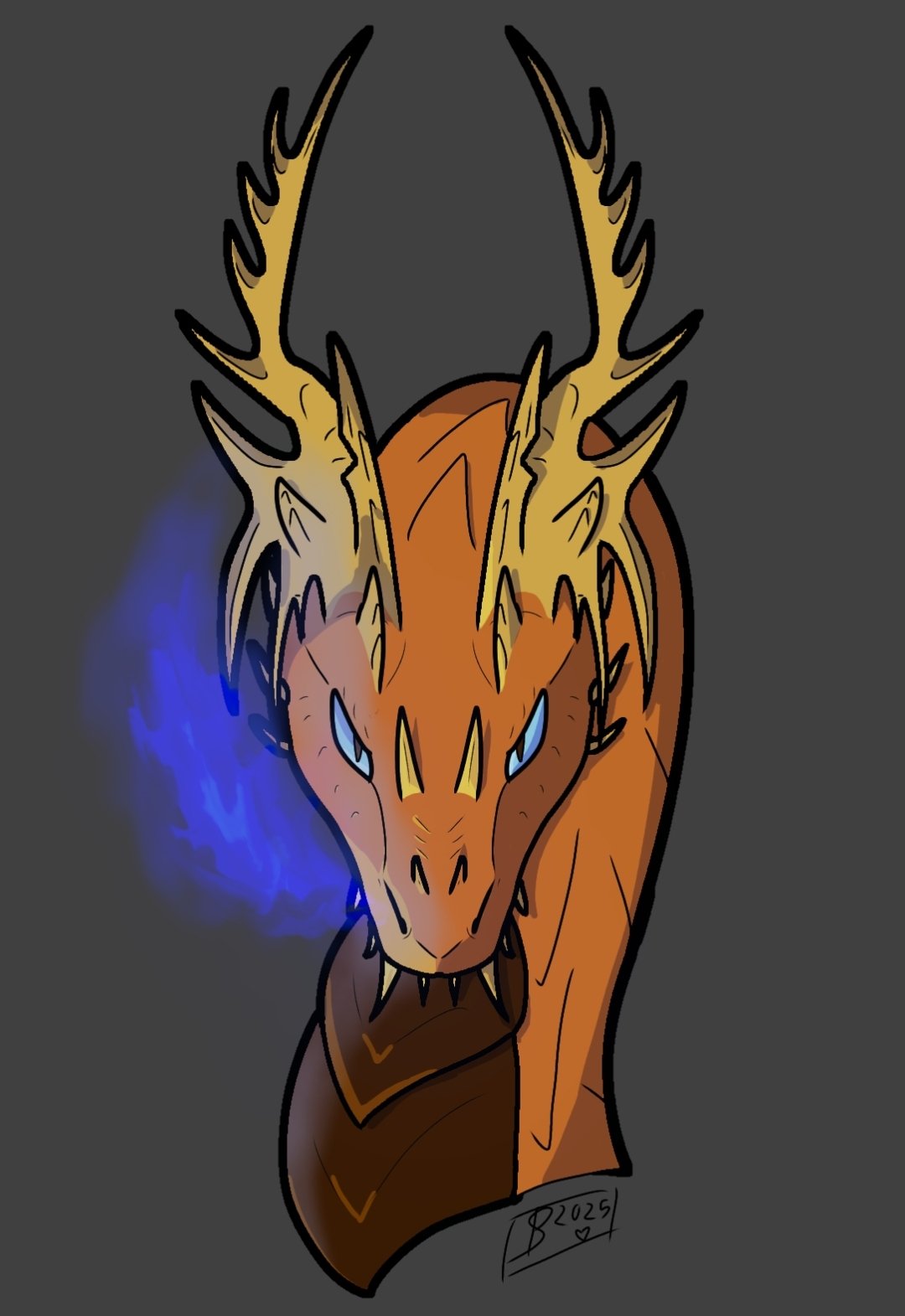
Internalized View of Self
Hunter Grant
Kiya's Meltdown, A Children's Story
Story by Stacey Plate (aka, Wren’s mom) and Wren (8 years old). Drawing by Wren
Trigger warning: portrayal of autistic suffering and meltdown
Right now, Kiya is at first recess, lifting single drops of dew off the grey metal monkey bars with her index finger before sucking them into her mouth. The playground is a loud cacophony of too much noise and too many kids, but here, counting dew drops, Kiya can quiet the world a little. She doesn’t always mind being alone.
Kiya looks over to where her best-friend Bea is swinging with another girl, and a sharp poke of jealousy stabs her chest. Kiya loves the swings. Swinging is one of her very favorite sensations (right up there with bouncing and spinning). But in this moment hiding feels more important to Kiya than swinging.
Kiya was playing with her friends when first recess started, but they didn’t listen to her ideas, and she got mad. Like swinging, Kiya loves inventing games, but she hates when the people she’s playing with change the rules she’s created, and they almost always change the rules. When Kiya tried telling Bea how she felt, Bea got mad at Kiya for being mad at Bea—which Kiya still can’t understand—and she fled to the monkey bars.
As Kiya sucks her finger into her mouth again, her stomach twists and lurches, and Kiya feels a slight breeze stir inside her chest. Sometimes, Kiya hates being alone.
In line to go back into class, two boys behind her start to argue about which Pokemon is best and Kiya puts her hands over her ears. Back in the classroom she puts her big headphones on and goes to the quiet corner, but Kiya can still hear everything like the volume is turned up to 10. Kiya’s head starts to hurt and the wind inside her gets louder, kicking up leaves.
During math, Kiya raises her hand to answer a question, but gets confused and loses her words. Her teacher is patient, but Kiya feels shame, and when she puts her head down on her desk, squeezing her eyes as tight as she can and wishing her whole body was small, rain starts to fall inside her. Kiya asks her teacher if she can go to the nurse hoping she’ll get sent home, but the nurse sends her back to class. Kiya’s stomach hurts and the wind inside her has started to howl.
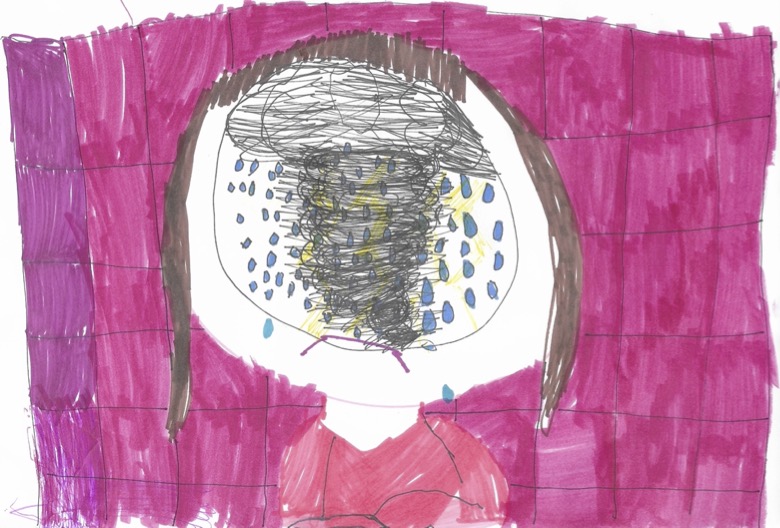
Illustration by Wren
Kiya’s mom is smiling when Kiya walks out of school and hugs Kiya, asking, “How was your day, sweet girl?”
Kiya mumbles, “Good,” but then she cries three times on the ten-minute walk home and she can tell by the time they get there that she’s making her mom mad. Kiya hates making her mom mad, but she doesn’t know how to stop it, and that makes her madder, the wind and rain inside Kiya starting to spin into a baby tornado.
They’ve barely been home five minutes, her mom in the kitchen washing dishes and making a snack, when Kiya accidentally pulls too hard on their dog Stella’s fur. Hearing their dog cry out, Kiya’s mom snaps at her from the kitchen, “Kiya! Leave Stella alone!” And that’s when the storm breaks.
Kiya runs upstairs to her mom’s bed, the mad and sad feelings so big and charged, Kiya’s body becomes a small cloud trying to hold back a raging thunderstorm. Lightening cracks. Kiya screams at the top of her lungs while swinging her fists down to hammer on her legs, “I hate myself! I hate myself! I hate myself!”
Thunder booms and Kiya bursts into sobs. She pulls at her hair hard enough to rip out strands of it and then moaning, scratches at her face and neck with her fingernails. Kiya screams, cries, hits, kicks, and claws as the storm bursts from her like a cyclone ready to destroy a city. Kiya thrashes on the bed, head, fists and feet bashing the quilts and pillows beneath her, her whole body arching up and down like a small boat on enormous waves.
Kiya is barely aware that her mom followed her upstairs and now lays quietly on the bed beside her. Kiya doesn’t hear her mom’s slow, long breaths as if she’s hoping her calm body will help Kiya’s body know that she’s safe. Kiya can only hear the sounds the storm makes as it rips from her body, Kiya at once the wild storm and the lone little girl in the middle of it.
All storms, even the most terrible and destructive ones, stop eventually.
Kiya’s sobs and screams become quieter tears and sniffles. She takes one long shaky breath. “I know you don’t like to be held or hugged when you’re upset, but can I put my hand on your back?” her mom asks. Kiya nods wordlessly from where she is, face down in the pillows. They lay like that for a few minutes, Kiya still catching her breath.
“Do you want to talk about it?” Kiya’s mom asks.
From within the pillows comes Kiya’s muffled, “Yes.”
“Do you really hate yourself?” Kiya’s mom asks her, voice soft and gentle. Kiya rolls her face and body towards her mom, who softly brushes hair away from her face, asking if the touch is okay. It is.
Kiya hesitates before responding, “I don’t know. It’s just…I don’t like being Autistic.”
“What is it about being Autistic you don’t like?” her mom asks.
Kiya takes a deep breath, holds it, then lets it out. “I feel like I do things wrong all the time. Sometimes I make a mistake, try to fix it, and feel like I can’t. I don’t know how to do things, and I feel like I should know how to do things. Sometimes when I’m upset it makes other people upset which makes me feel like being upset isn’t okay. I always feel like I’m doing something wrong. When I cry people tell me what I’m crying about isn’t a big deal, and I feel bad for crying. Sometimes, people get mad at me for my feelings and it makes me feel like a bad person.”
She pauses. "And, I don’t have any friends.”
“Wow,” says her mom after a pause. “That’s a lot. That all sounds very hard. I can see how being Autistic can feel badly sometimes. I wonder though…” her mom trails off, staring up at the ceiling. Kiya puts her head on her mom’s shoulder, something she almost never does, and her mom kisses her forehead.
“I wonder how much of what makes being Autistic hard is because the world around you makes it hard. I wonder how much of what makes it feel bad is because the people around you, even me sometimes, don’t understand you, think you should be different, and make you feel bad.”
All day long the elements for a storm gather inside Kiya’s brain and body: the loud noises, too many bodies, the unwanted smells, tastes and touches, the social expectations needing Kiya to be different, Kiya’s constant confusion, and the never-ending messages that Kiya is different, other, and bad. The storm can only stay inside her for so long, and Kiya can’t control when it breaks loose or what she does when it consumes her.
“Is this okay?” Kiya’s mom asks as she runs her fingers through Kiya’s hair. Kiya nods, not meeting her mom’s gaze. They are quiet together for a long time, lying beside each other, nestled safe and sweet.
“I’m sorry, honey,” her mom finally says. “I hope you know that none of this is your fault. You are doing the very best you can, and most days what’s asked of you is way too much. It isn’t fair, and it isn’t right. The problem is the world you were born into, never you my sweet girl. You’re told in so many ways every day that you are wrong, so of course you feel wrong, but I promise it’s not true. There is nothing wrong with you. I don’t know how we’ll make it better, but we’re going to try.”
Kiya’s body has relaxed, and her brain has reset. Nothing is too big inside her and she can easily think again. “I do like that I’m Autistic a lot of the time. Just not all the time,” Kiya says into the calm surrounding her. “Good,” her mom answers. “I like that you’re Autistic too.“ Kiya’s mom squeezes Kiya tightly to her side once and lets go.
“I farted,” Kiya whispers and loud bursts of laughter break the quiet in the room.
“Ewwwww!” her mom shrieks. “You’ll have to call an ambulance when I pass out from the fumes!” her mom teases as Kiya lets her tongue loll out, pretending that she’s dead. Her mom grabs her in a sudden, fierce hug. “I love you exactly as you are and more than you could ever possibly imagine,” she declares.
“I know, Mom,” Kiya answers with an eye roll. “Can you tickle me now?”
And as her mom tickles her, Kiya squealing in delight, the sun comes through the fading clouds and beams in the bright blue clear sky. The air is still and the world inside Kiya is calm. For now.
Web of Bliss
Christina Donaldson
This short piece of fiction is inspired by a painting called ‘Web of Bliss’ by Vladimir Kush. See more of the artist's paintings and prints here.
It was her favorite time of day, when the sun was glazing over, and the sky filled with a hazy yellow hue. Stillness and quiet settled in, and she breathed into it. Her web was complete after a long day hard at work.
She had been so focused that she had skipped her dinner, working later than she had set out to. But at last, her web, her home, was finished and she could relax in it, its edges tightly secured. Her workmanship was top class; she’d had a lot of practice. She’d been asked to build webs for neighbors in the past and had volunteered to help build when webs in the community were destroyed by the rain or those pesky night creatures. And while she had found great satisfaction in being able to give back and use her skill to help her fellow spiders, there was nothing quite like the feeling of knowing you had built your own home.
As with everything in her life, she knew it wouldn’t last forever. Unlike some of the other animals living nearby, she didn’t have the gift of being able to read the weather. Instead, she was helpless to its moods, knowing this meant she would have to re-build again at some point.
At the same time, she had learned over the years that having to re-build her home so many times had made her more proficient at her craft. She was able to build a solid web in just one day now, and she was better able to locate spots that would be protected from the wind.
Sleepy and hot from the sun, she felt her body sink into the web as she smiled, a moment of pure bliss. A few of her legs sprawled over the web, which swayed lightly like a hammock. While it was true that her web was quite vulnerable, she wouldn’t have traded it for a home underground or tucked away in the brush. She loved to sleep and work and dream under the great big sky, watching the stars each night and wishing for another day like today.
As the sun gradually disappeared from her sight, she sighed and awaited the darkness. It was a new moon tonight, she remembered. Her mind stayed present, and she didn’t worry about how long her web would last, or whether she’d have the energy to make the next one, as she was aging day by day. She had learned that it wasn’t worth spending her time fretting over such things. They would be as they would be, and she was going to live her life on her terms, building her webs to perfection, helping others when she could, and savouring every last moment of bliss in this wondrous, uncertain world.
Bathrobe Comics: Holiday Survival Tips
Sarah Jane Cody
First published on Dec 20, 2024, on the Bathrobe Gal website
My New Year’s resolution is to be fully myself, now that I finally understand myself.
When I finally found out the truth, that I was just a different type of human––an autistic human––I was still pretty confused at first. Ultimately, it changed my life. I’m so grateful for the autistic community I’ve found who’ve collectively helped me find great understanding, resources, and the confidence to wholly embrace the being I am.
And I’m deeply grateful for the support of other friends and family who accept me and love me as I am.
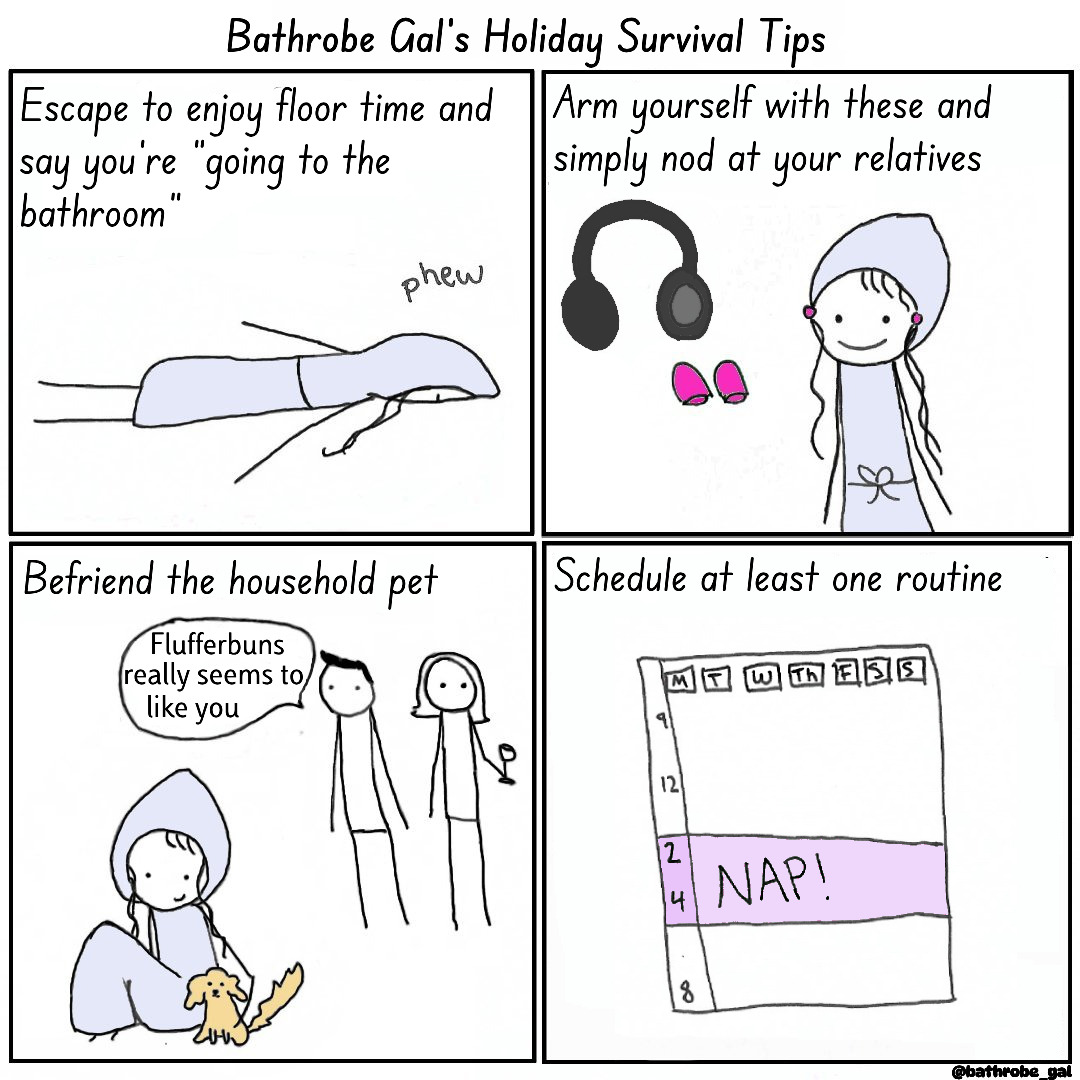
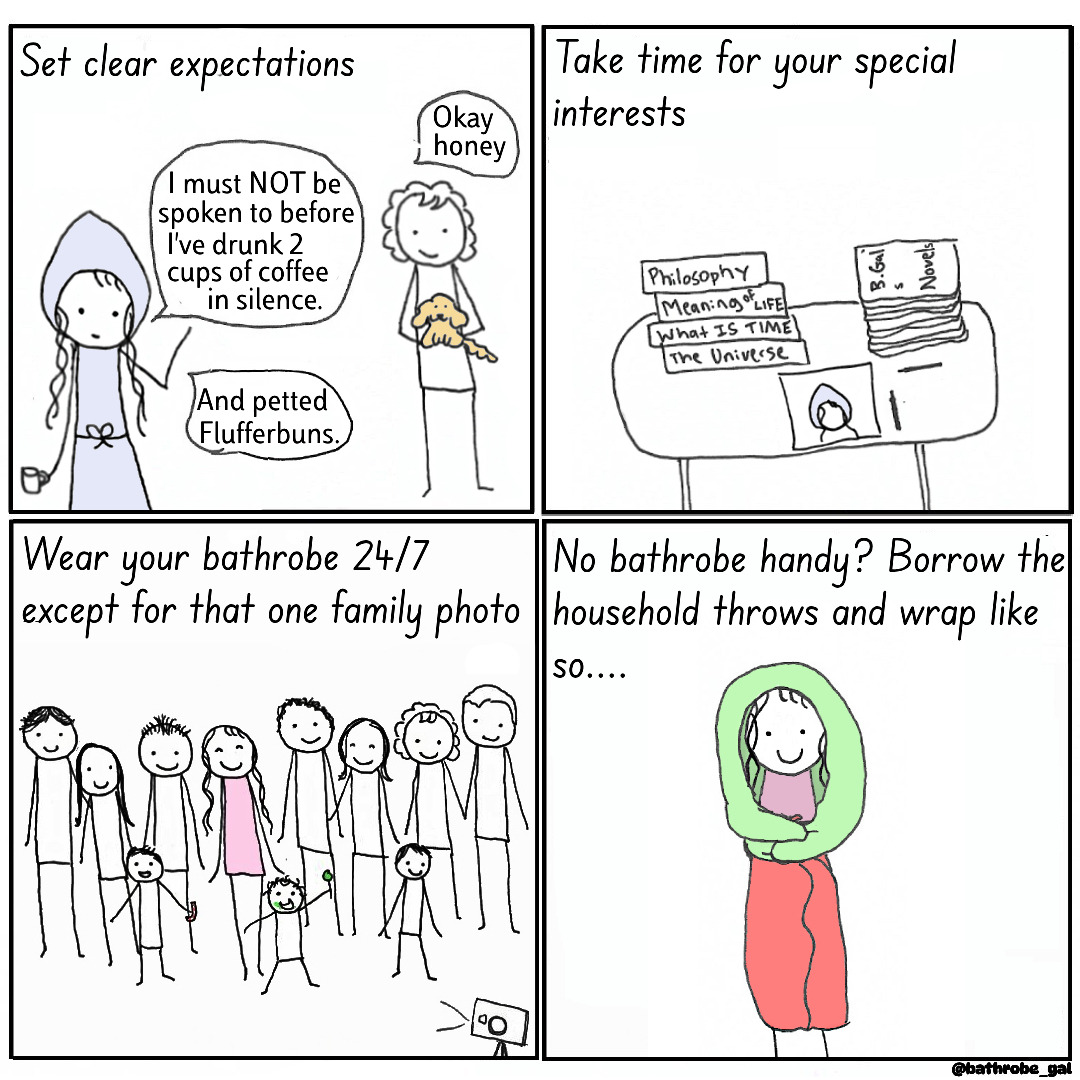
Sticker: U Matter
Elissa Fox
